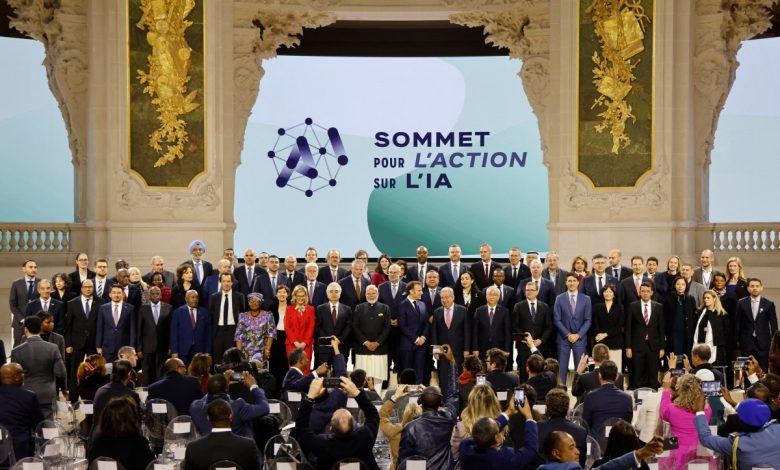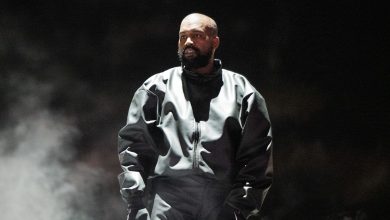As US and UK refuse to sign the Paris AI Action Summit statement, other countries commit to developing ‘open, inclusive, ethical’ AI

The Artificial Intelligence Action Summit in Paris was supposed to culminate with a joint declaration on artificial intelligence signed by dozens of world leaders. While the statement isn’t as ambitious as the Bletchley and Seoul declarations, both the U.S. and the U.K. have refused to sign it.
It proves once again that it is difficult to reach a consensus around artificial intelligence — and other topics — in the current (fraught) geopolitical context.
“We feel very strongly that AI must remain free from ideological bias and that American AI will not be co-opted into a tool for authoritarian censorship,” Vice President of the United States, JD Vance, said in a speech during the summit’s closing ceremony.
“The United States of America is the leader in AI, and our administration plans to keep it that way,” he added.
In all, 61 countries — including China, India, Japan, Australia and Canada — have signed the declaration that states a focus on “ensuring AI is open, inclusive, transparent, ethical, safe, secure and trustworthy.” It also calls for greater collaboration when it comes to AI governance, fostering a “global dialogue.”
Early reactions have expressed disappointment over a lack of ambition. “At the next international summit, we should not repeat this missed opportunity,” Anthropic’s Dario Amodei wrote in a statement. “The advance of AI presents major new global challenges. We must move faster and with greater clarity to confront them.”
More countries may sign the declaration in the hours after the event.
Lighter regulation of AI has been a common topic across the event. Earlier Tuesday, EU president Ursula von der Leyen reminded dignitaries that EU AI safety regulation is also designed to simplify interactions across the bloc’s Member States.
“This is the purpose of the AI Act to provide for one single set of safe rules across the European Union — 450 million people,” von der Leyen emphasized. “Instead of 27 different national regulations and safeties in the interest of business.”
“At the same time, I know that we have to make it easier, and we have to cut red tape — and we will,” she added.
On Monday, French President Emmanuel Macron urged Europe to simplify its regulations to get back into the AI race. “It’s very clear that we have to synchronize with the rest of the world in terms of transmission, in terms of permitting, in terms of authorization, clinical trials — I mean, in all the different sectors.”
Government leaders should “avoid the risk-opportunity dilemma” and “the immediate need for regulation, which could block innovation,” Macron added in another speech on Tuesday.
At the same time, the French President walked a fine line as he defended the need for international governance on artificial intelligence. “We need these rules for artificial intelligence to move forward,” he argued.
“It’s not a question of defiance, it’s not a question of thwarting innovation, it’s a question of enabling [innovation] to happen at an international level while avoiding fragmentation,” Macron added.
For the U.S., not signing the AI Action Summit declaration is a matter of diplomatic principle. During the early days of Donald Trump’s second presidency, the U.S. has withdrawn from several international bodies, including the World Health Organization and the Paris Climate Agreement. AI Summit consensus can now be added to that list.



